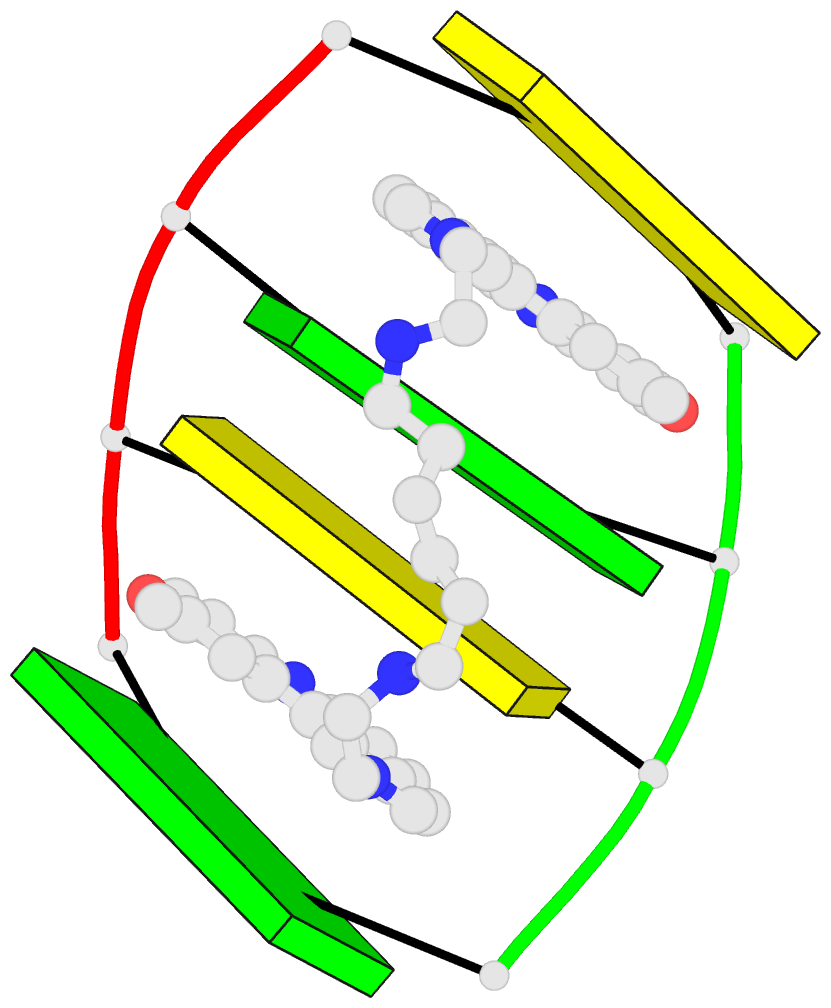Summary information and primary citation
- PDB-id
-
154d;
SNAP-derived features in text and
JSON formats
- Class
- DNA
- Method
- X-ray (2.5 Å)
- Summary
- DNA distortion in bis-intercalated complexes
- Reference
-
Peek ME, Lipscomb LA, Bertrand JA, Gao Q, Roques BP,
Garbay-Jaureguiberry C, Williams LD (1994): "DNA
distortion in bis-intercalated complexes."
Biochemistry, 33, 3794-3800.
doi: 10.1021/bi00179a002.
- Abstract
- The bis-intercalators Flexi-Di and ditercalinium are
synthetic dimers that bis-intercalate into DNA and cause
cell death in prokaryotes from futile and abortive repair
of DNA. Each is composed of two 7H-pyridocarbazole units
and a linker. Flexi-Di has a flexible spermine-like linker
while ditercalinium has a rigid bis(ethylpiperidinium)
linker. This report, describing the 2.5-A X-ray structure
of Flexi-Di complexed with [d(BrCGCG)]2, appears to be the
first report of a three-dimensional structure of a DNA
complex with a bis-intercalator with a flexible linker. DNA
complex formation with a ditercalinium analog having a
flexible linker was not anticipated to yield unstacked and
bent DNA as was observed in the previously reported
ditercalinium.[d(CGCG)]2 complex. Surprisingly, the DNA in
the Flexi-Di complex is bent to a degree exceeding that of
the ditercalinium complex. A comparison of the DNA
complexes of Flexi-Di and ditercalinium has allowed us to
propose a mechanism by which these bis-intercalators
distort DNA. We propose that this class of
bis-intercalators pulls the internal base pairs into the
major groove and pushes the external base pairs into the
minor groove. The result is a bend toward the minor groove.
It appears that hydrogen bonds between the linker and the
internal guanines effectively pull the central base pairs
of the complex out into the major groove. At the external
regions of the complex, stacking interactions between the
chromophores and terminal base pairs effectively push the
terminal base pairs into the minor groove. The result of
this push/pull combination is to bend the DNA.





